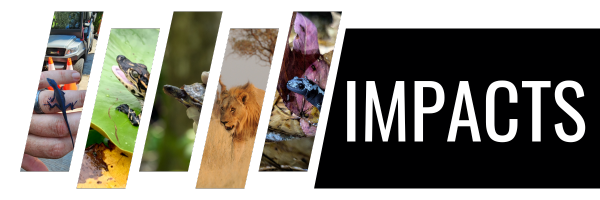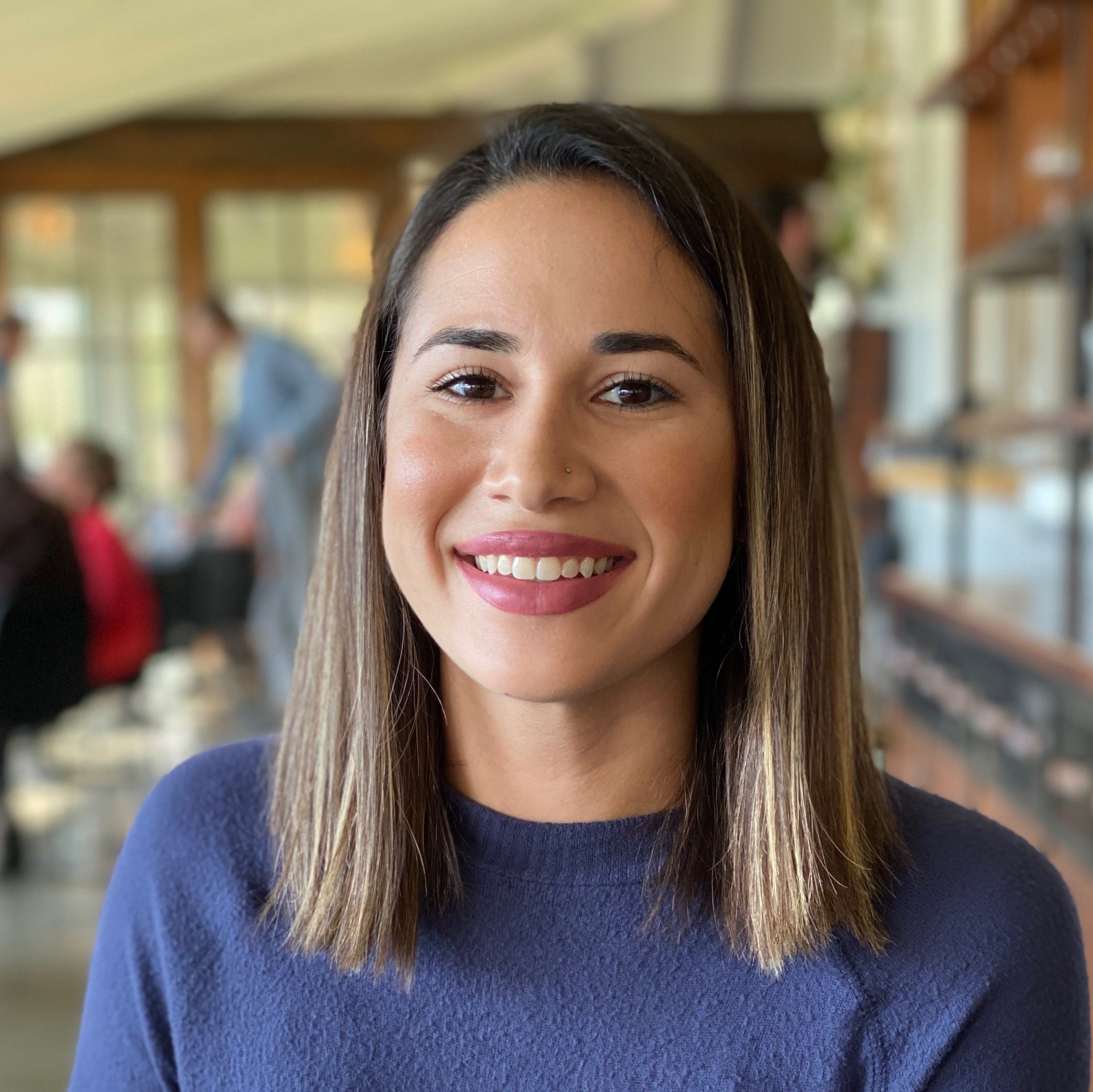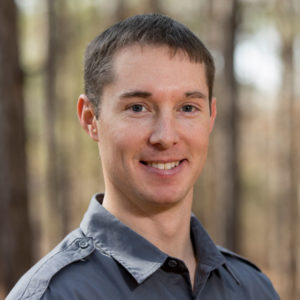Summer Impacts Newsletter is now available

Our newest edition of Impacts is out! Check it out here!

Our newest edition of Impacts is out! Check it out here!
Laura Kojima, a master’s student at SREL and the Odum School of Ecology, is the recipient of a 2021 National Science Foundation Graduate Research fellowship. The fellowship will provide a stipend for up to three years and additional funds to directly support her research.
“Receiving this fellowship is a huge honor, especially as an underrepresented minority in STEM. The process of grant writing and conducting my own research was a completely new process for me, and to have the mentorship and accessibility to successfully do so is something I am very grateful for,” said Kojima.
Kojima’s research assesses levels of chemical contaminants in alligator tail muscle and exposure concerns associated with the public harvest and consumption of alligators that travel on and off contaminated areas.
Scott Oswald, a doctoral student at SREL and the Warnell School of Forestry and Natural Resources, was recently named a recipient of the 2020 Office of Science Graduate Student Research fellowship from the U.S. Department of Energy.
The award is given for outstanding accomplishments in academics and research that show the potential to make important contributions to the mission of the DOE Office of Science. The fellowship will allow Oswald to conduct research at the Oak Ridge National Laboratory in 2022.
Oswald’s research will work to improve how large ecosystem models represent sugar and starch dynamics to better predict how plants respond to future climates, and to develop a framework for those dynamics using ecological and evolutionary theory.
“This fellowship is a good opportunity to receive mentorship and guidance about developing the ability to make connections between my background in mathematical biology and experimental observations,” said Oswald.

 Aiken, S.C. – James C Beasley, associate professor at the University of Georgia’s Savannah River Ecology Laboratory and the Warnell School of Forestry and Natural Resources, has been named an Ecological Society of America Early Career Fellow for 2019. He is one of eight recently selected for the honor.
Aiken, S.C. – James C Beasley, associate professor at the University of Georgia’s Savannah River Ecology Laboratory and the Warnell School of Forestry and Natural Resources, has been named an Ecological Society of America Early Career Fellow for 2019. He is one of eight recently selected for the honor.
According to ESA’s recent press release announcing the honor, Beasley was elected for outstanding contributions internationally in the field of applied ecology through his research in invasive species ecology, carnivore ecology, scavenging ecology and wildlife population ecology in landscapes abandoned following nuclear accidents.
ESA also states the honor is given to members who within eight years of completing doctoral training have advanced ecological knowledge and applications and show promise of continuing to make outstanding contribution to a wide range of fields served by ESA. Individuals are elected to serve for five years.
Beasley received a doctoral degree in wildlife ecology from Purdue University. Prior to coming to UGA, he was a visiting assistant professor at Purdue. In 2018, he was chosen as the UGA’s Fred C Davison Early Career Scholar.
ESA established its fellows program in 2012 with the goal of honoring its members and supporting their competitiveness and advancement to leadership positions in the Society, at their institutions and in broader society. Additional information about ESA Fellows and Early Career Fellows can be found on the ESA Fellows page.
The leadership and staff of SREL are deeply saddened by the death of Michael H. Smith, former and longest-serving director of SREL. Smith died on Nov. 15.
Big Mike, as he was affectionately known, earned an undergraduate degree from San Diego State University and a doctorate from the University of Florida. He served as director of SREL from 1973 to 1999, remaining as a professor of ecology at UGA until he retired in 2002.
Smith was recognized internationally as an expert in population genetics, ecology and radioactivity in the environment. His unique expertise evaluating the effects of radiation in the ecosystem led to his role as an adviser in response to the Chernobyl nuclear reactor accident.
*Individuals interested in graduate opportunities should also check faculty websites under the individual faculty listings in the faculty/scientists directory